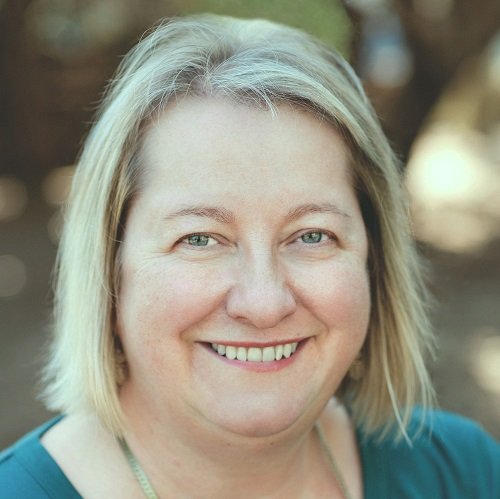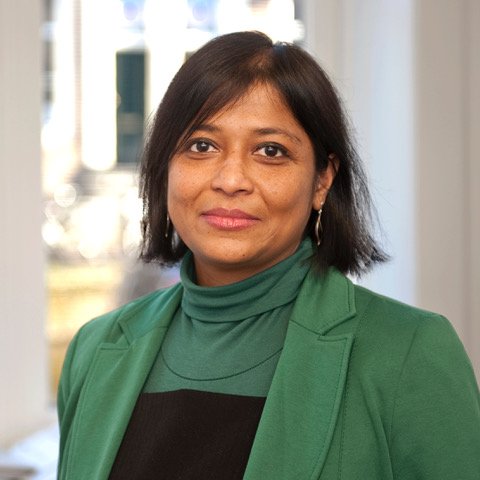Earth Commission Strengthened to Identify Governance Solutions for a Safe and Just Planet
The mission of the Earth Commission is to define a “safe and just corridor” that ensures a future where people can thrive in harmony with nature. This includes identifying thresholds for protecting Earth’s life support systems such as biodiversity, freshwater, oceans and land, but equally crucial are aspects of human wellbeing, socio-economic factors and justice. A safe future for the planet also needs to be a just future for all people.
In July the Commission’s Transformations Working Group gathered for the first time, led by Joyeeta Gupta, Professor of environment and development of the Global South, University of Amsterdam, and Diana Liverman, Professor of geography at University of Arizona.
“The world faces an enormous challenge in protecting Earth’s life support systems – while at the same time achieving the UN Sustainable Development Goals, such as eradicating poverty and hunger. Our group will bring ideas of justice and social transformation to the work of the Earth Commission”, explained Diana Liverman, an expert on human dimensions of global environmental change.
Important tasks for the Transformations Working Group will be to investigate the socio-economic drivers that are increasing climate risks and threaten biodiversity, and to take a deeper look at the synergies and trade-offs between social and environmental goals for sustainability.
“The most exciting but also challenging part of our work is that we will weave together the ideas of what is safe from an environmental perspective, and what is just from a social perspective and how these relate to each other. We will also look at how we can bridge the gap between what is necessary to create a safe future and what is politically possible to achieve. Moving from incremental change to transformative change requires a shift in vision, understanding and commitment from leaders, scientists, and civil society”, said Joyeeta Gupta.
Another focus will be to examine the actors, levers and policies that promote transformative change to achieve social goals within planetary boundaries and what pathways these transformations can take. An important aspect is how governance and the institutions of our societies can be designed to achieve a desired transformation.
The Earth Commission work is supported by a consortium of funders including the Global Environment Facility, Porticus, MAVA, Oak and the Gordon and Betty Moore Foundations. A grant from the Global Challenges Foundation has enabled the Commission to look further into questions of governance.
“Identifying governance solutions on how to stay within planetary boundaries in a safe and just way is crucial for humanity and we are happy to be able to contribute to this important work”, said Linda Burenius Senior Advisor at Global Challenges Foundation.
Joyeeta Gupta commented: “This grant will enhance the richness of our work and give us more time to focus on the important questions around governance.”
To address the relevant governance issues the working group includes several distinguished academics from across the globe specialising in earth system governance. The Earth Commission appointed the members following an open call for nominations in 2019, and targeted nominations from Future Earth’s research networks.
“It’s exciting to work with this group from around the world, with diverse perspectives on justice and transformation, to identify opportunities to achieve a safe and stable Earth system without compromising human well-being and social justice”, said Diana Liverman.
Diana Liverman, University of Arizona

Joyeeta Gupta, University of Amsterdam

Members:
Paulina Aldunce, Universidad de Chile
Xuemei Bai, Australian National University
Harriet Bulkeley, Durham University
Christopher Gordon, University of Ghana
Margot Hurlbert, University of Regina
Cristina Inoue, University of Brasilia
Norichika Kanie, Keio University
Timothy Lenton, University of Exeter
David Obura, CORDIO East Africa
Chukwumerije Okereke, Alex Ekwueme Federal University
Ilona Otto, Potsdam Institute for Climate Impact Research
Laura Pereira, Stockholm Resilience Centre/Utrecht University/Stellenbosch University
David Tàbara, Autonomous University Barcelona, Global Climate Forum Berlin
Peter Verburg, Vrije Universiteit
This article was originally published on the Earth Commission website.
DATE
September 25, 2020AUTHOR
Future Earth Staff MemberSHARE WITH YOUR NETWORK
RELATED POSTS
Future Earth Announces Earth Commission Second Assessment with a New Cohort of Experts
Earth Commission Co-chair Johan Rockström Wins 2024 Tyler Prize
Future Earth Members Selected as Experts for IPCC Special Report on Cities